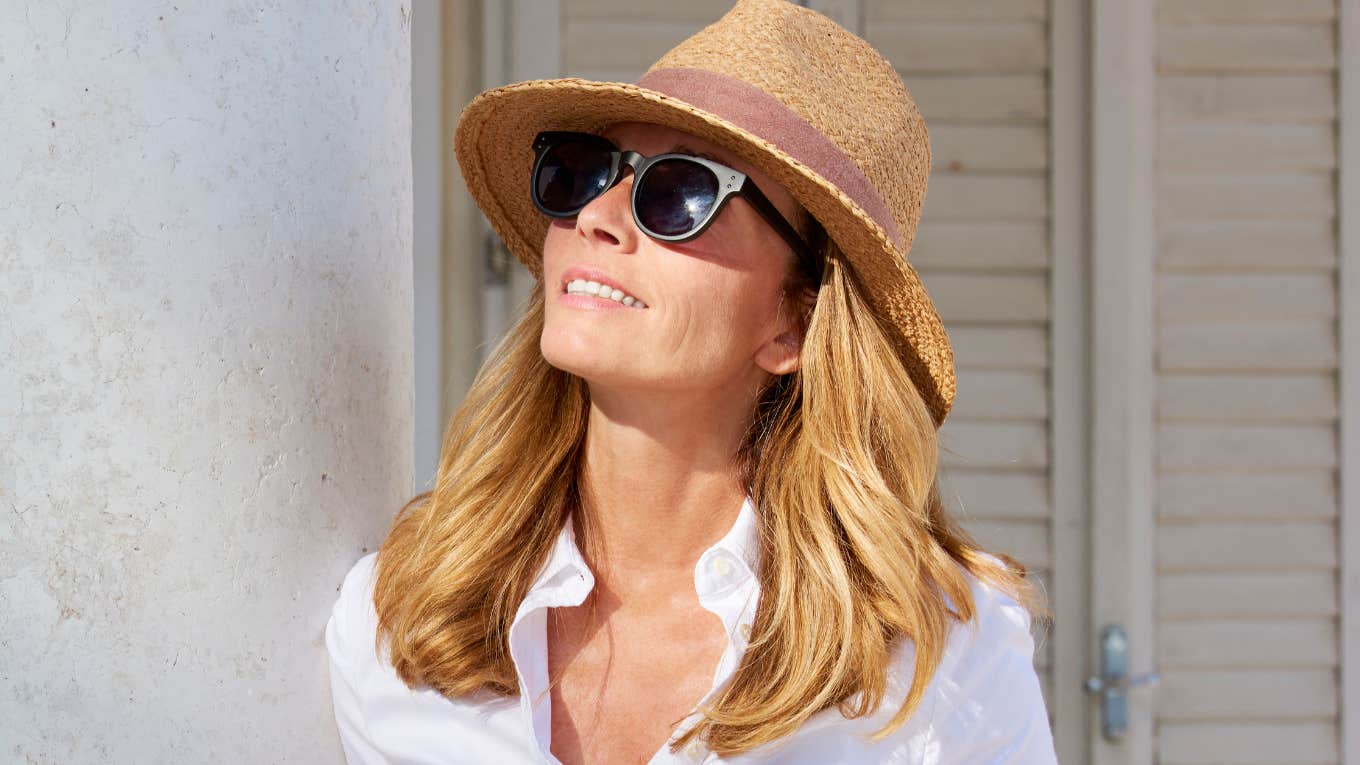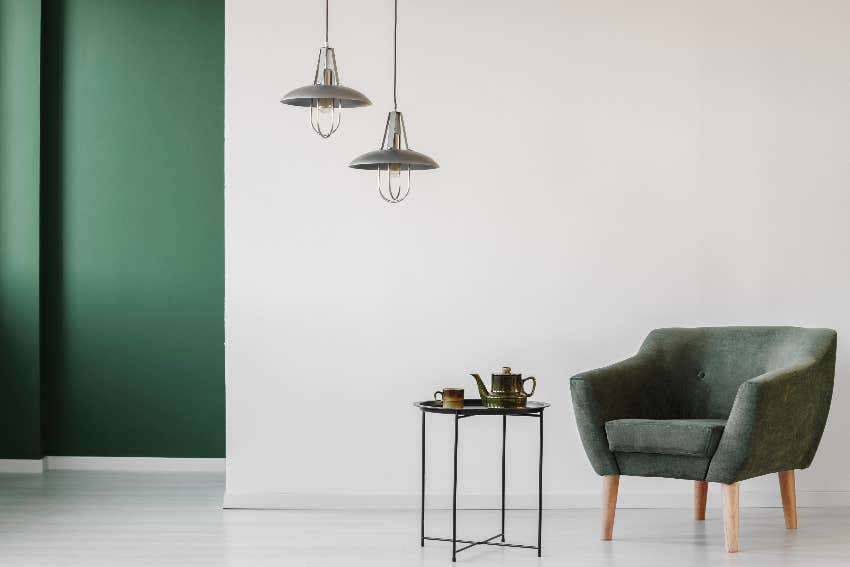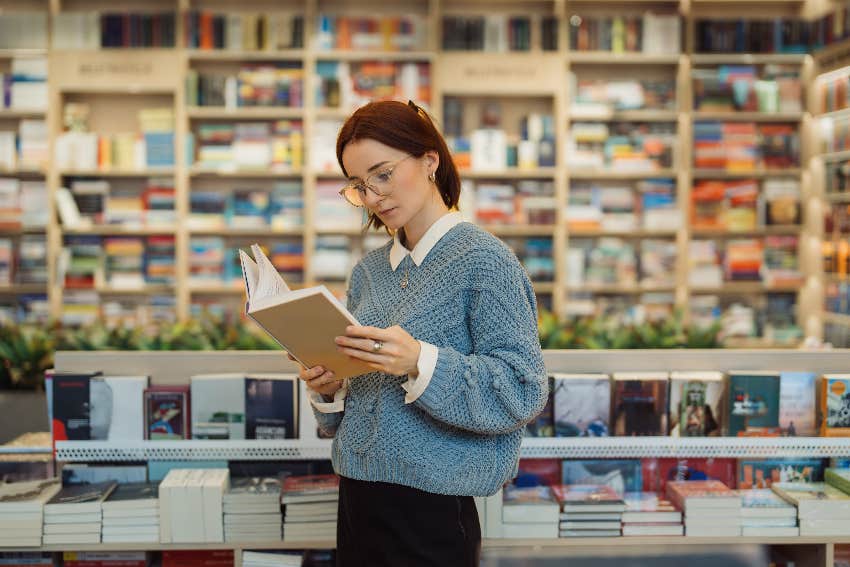What I Learned About Myself When I Purged Almost Everything I Owned
My materialism masked my insecurities and made me avoid facing myself.
 Szepy | Canva
Szepy | Canva As I walked to catch the last train home after half a week spent in Washington, D.C. celebrating my long-distance boyfriend's birthday, I realized my pants were annoying me. The waist had become too loose, and I had to wiggle them up every dozen steps.
My arms were tied up with a cross-body bag and other little things, and I felt frustrated. In that frustration, I began to project, thinking I was mad at the weather, the fact that we're still long-distance, or whatever else my mind could come up with.
I darted in and out of the clothing stores that lined the streets on my way to the station. I knew I wasn't going to buy anything, but I was looking for jeans. Different jeans.
As though I could stumble upon the jeans that magically wouldn't make me have to wiggle and feel uncomfortable and all would be well. I didn't buy anything because I'm good with my commitments once I make them.
About 10 months ago, I parted ways with almost everything I owned.
I wouldn't consider myself living a "minimalist lifestyle" in that I don't actively identify with that term, but my goal is and has been to live a simpler life.
 Ground Picture / Shutterstock
Ground Picture / Shutterstock
Reducing what I owned down to only what I loved and needed to be brought upon a realization, my understanding of which has taken months to begin to fully unfold. I finally understood why I grew up hearing that materialism was "bad" or how it tainted the mind.
I'm not arguing that we should dispel all of the great things that ease-of-access consumerism brings, just that when not kept in check, it wreaks emotional havoc.
In having to fully address why I clung to the things I did and why I consistently wanted to consume, I began to understand why I was stressed all the time — and it had nothing to do with not having enough pairs of jeans.
It illuminated for me exactly why we insulate ourselves with, well ... garbage.
You must have a profound comfort within yourself to be able to live minimally, and I believe that underneath the appealing aesthetics and zen aspirations, the movement toward minimalism is born of a deeper desire to find a sort of inner peace that seems elusive but that we know exists.
When I had a drawer full of medicines I almost never used, I had insulated myself from the fear that I couldn't take care of myself on my own.
When I had a home full of decor I barely cared about, I had insulated myself from the idea that unless I appeared successful, I wasn't.
When I had drawers and closet(s) filled with clothing, I insulated myself from the feeling of discomfort within my own body or within my identity. I could mold and shift and become a different person if I wanted to be.
I didn't have to be myself because I could fill those gaps with new looks or more things.
I could distract myself from the discomfort of simply being with myself by hyping myself up to think that happiness was around the corner of just "one more thing."
I don't have to focus on being at peace with myself, I'd think. I'm clearly not at peace with myself because I don't have a new dress to wear to that event! And my kitchen counters aren't the shade of stone I prefer! Clearly, that's the problem.
Minimalism isn't the solution — it's the pathway to the solution. When I committed myself completely to not finding my happiness in spending, I realized I had to fill my time with something else. So I started reading. I bought a stack of social psychology textbooks and have been writing about what I've learned since.
 Arthur Bargan / Shutterstock
Arthur Bargan / Shutterstock
I found that the feeling of my favorite white linen t-shirt would never come close to the feeling of being able to hide behind a stylish dress.
I no longer waste half of the nights I spend with my significant other doing dishes or rushing to finish laundry or cleaning before the company comes over.
Things are always kind of in order. We spend nights taking walks, seeing friends, and reading next to one another in bed and then stopping to tell one another about what we read.
I feel more comfortable with money because I don’t fear that my compulsions will force me to spend it. Those compulsions were my insecurities.
I feel more comfortable within my body because I know that nothing else is going to fix it for me. I save for the goal of being able to take care of myself in an emergency, not the fear that I will. In changing how I relate to myself, I changed how I relate to other people, too.
In being more mindful of the things that are around me, I decided to be more mindful of the people who were around me, too.
I believe that my time and energy are the most precious resource that I have.
In fact, it's all that I have. And if I want to live a life that's true and authentic and what I want it to be, I have to be discerning about how and where, and with whom it's spent.
The rush and the inner chaos are gone, and what's not fully gone is continually dissolving. Living with less wasn't about living without things but learning to live with me.
Brianna Wiest is a writer, editor, author, and regular contributor to publications such as Huffington Post, Forbes, Teen Vogue, Thought Catalog, and many others. She's the author of 101 Essays That Will Change The Way You Think and other collections of poetry and prose.
